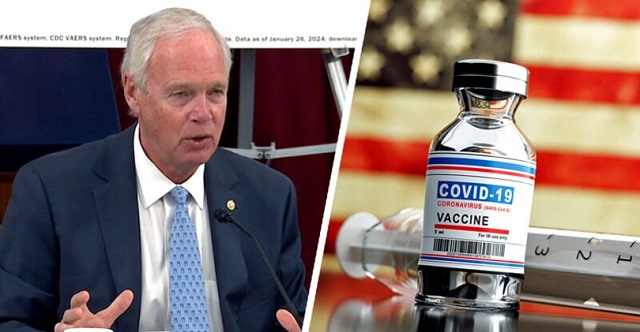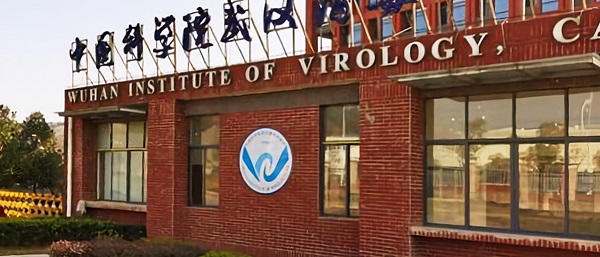Economy
Fossil fuels aren’t going anywhere, we benefit too much from them

From the MacDonald Laurier Institute
By Chris Sankey
Indigenous people are finally reaping the rewards.
Over the last eight years we have experienced an unprecedented push from environmental activists to phase out fossil fuels. The Government of Canada seems to think it is possible. During question period in the Senate earlier this year, Sen. David Wells noted that, according to the Liberals, the energy transition “will cost $100-$125 billion per year at least to 2050,” and asked “When Canada only emits 1.5 per cent of global emissions, how does this expenditure make sense?”
Let me repeat that. $125 billion each year.
Who is going to pay for this? This is simply not possible, unless people want to see the Canadian economy in ruins.
Without fossil fuels, life as we know it would not be possible. State-of-the-art lifesaving medical equipment comes from fossil fuels and critical minerals from mining. Critical infrastructure, vehicles, planes, trains, container ships, ferries, and the billions of household necessities we buy from Canadian Tire, Walmart, Amazon and Ikea come from fossil fuels and help us function in our everyday lives. Without these needs we simply do not prosper.
Take for instance the environmental marches we see on our streets. The protesters seemingly have zero understanding of what makes their marches possible? Yes, fossil fuels. If you are going to protest for “Just Stop Oil,” then climate activists have to stop blocking traffic, because an idling vehicle is so much harder on the environment. And what about showing up in clothing and holding up signs made of hydrocarbons demonstrates your commitment to saving the planet? Hypocrisy? Absolutely.
From the moment we come out of our mother’s body, fossil fuels make our lives better. From cradle to grave, our lives are intertwined with fossil fuels. Just think of the act of giving birth. Chances are the mother was rushed to hospital in an ambulance, helicopter, plane, your personal vehicle, or taxi. As grandparents, siblings, uncles, aunts and cousins arrive at the hospital in their fossil fuel-powered cars and trucks smiling ear to ear welcoming the new baby to the family. They show up with gifts likely made from fossil fuels and critical minerals. If it is not made from fossil fuels, they were most definitely transported to the store using fossil fuels.
It is time we stop kidding ourselves that we can step away from the oil and gas wealth upon which our country benefits so much.
Only now, it will be Indigenous communities who are going to lead the multi-billion-dollar opportunity and put Canada at the front of global markets as a preferred supplier. For far too long, activist’s voice have been the determining factor in how governments make decisions on this necessary industry in our territories.
We need to make sure we have a framework that lays out a technology transition where we produce cleaner oil and gas by using new technology that will reduce emissions and grow our economies.
Since the Liberals were elected in 2015 everywhere we turn, our resource sector is being badly hurt. Forestry, fishing, oil and gas are screaming for more production, but federal regulations threaten to not only destroy the energy industry, but all industries with the emissions cap. Renewables are costing taxpayers billions in subsidies and it will not end there.
Indigenous people have always took care of the environment and grown our economies. From fishing, logging, farming and hunting, we used fossil fuels to make it happen.
Obviously, humans did not use fossil fuels prior to the industrial revolution and indigenous people made hunting weapons out of wood and stone. Life was challenging for our ancestors back then; life expectancy was short for all people.
Over time, technology in the energy sector changed for the better. I would be remiss if I did not include the fact that industry did not always have modern clean tech; emissions were high and cancer-causing effects were widespread. That introduced chemicals foreign to indigenous people. Like all things, newer and safer technology emerged. Making life much easier and convenient.
However, historically speaking indigenous people lived on fat and protein. Everything we ate was natural. Like all things that come and go, European contact forever changed our way of life. We were greatly impacted in every possible manner, from social, cultural, status and creed. But like we always have, we persevered like our ancestors wanted us too.
This is our turn to take our rightful place on the global stage. We are watching it play out in real time around the world. Energy and food security is the number one priority around the world. Indigenous communities near and far are leading the way in the pursuit of sustainable development, but government and activists are hindering our ability to progress.
It is important that Canadians be realistic when it comes to the use of oil and gas. All of us want to leave our planet better for the next generation. To do so, we must manage expectations. Many countries are just now finally transitioning to oil and gas from more environmentally harmful coal and countries like India will not be carbon neutral until 2070 or later.
Our country has an abundance of resources that the world wants. They are literally knocking on our door to get access to our wealth. We can help countries like China, India and Indonesia move away from burning coal and wood, and thereby help lift millions out of certain poverty, and improve their health.
New climate change technology has emerged in the energy sector, such as carbon capture and storage that will reduce and eliminate emissions and the need for diluent in oil pipelines. Our combination of Indigenous knowledge and history to the land makes for a stronger argument to partner with Indigenous communities. Alignment amongst indigenous communities is key to securing a project. Proper alignment will de-risk a project and attract investment and industry to the table where we will have a seat and even equity.
Engagement with Indigenous communities is the solution. The vast majority of our people are not against development. We are only against development when we are excluded from the opportunities, or if the evaluation process was developed without Indigenous input.
It is not rocket-science. Include the people whose territory you want to build on. This is an opportunity to build relationships through meaningful dialogue and trust. We must have nation to nation dialogue and build leadership to leadership relationships. No hidden agendas, just up-front, honest conversations about oil and gas and the costs and benefits of development.
I am tired of watching our people struggle. Our people do not want to watch the prosperity boat sail by Poverty Island. Markets do not wait for anyone. We cannot keep waiting for the right time. We cannot keep waiting for life to get better. First Nations can make it better by being at the economic table where our people can bring traditional knowledge to industry and make decisions in the best interests of our communities. Whether we agree or not in the first instance, we need to be in the room working towards a brighter future, because at the end of the day we all need rubber boots too.
Chris Sankey is a Senior fellow at the MacDonald Laurier Institute, a former Elected Councilor for the Lax Kw Alaams Band and Businessman.
Business
Canada Hits the Brakes on Population

The population drops for the first time in years, exposing an economy built on temporary residents, tuition cash, and government debt rather than real productivity
Canadians have been told for years that population decline was unthinkable, that it was an economic death spiral, that only mass immigration could save us. That was the line. Now the numbers are in, and suddenly the people who said that are very quiet.
Statistics Canada reports that between July 1 and October 1, 2025, Canada’s population fell by 76,068 people, a decline of 0.2 percent, bringing the total population to 41,575,585. This is not a rounding error. It is not a model projection. It is an official quarterly population loss, outside the COVID period, confirmed by the federal government’s own data
The reason matters. This did not happen because Canadians suddenly stopped having children or because of a natural disaster. It happened because the number of non‑permanent residents dropped by 176,479 people in a single quarter, the largest quarterly decline since comparable records began in 1971. Permit expirations outpaced new permits by more than two to one. Outflows totaled 339,505, while inflows were just 163,026
That is the so‑called growth engine shutting down.
Permanent immigration continued at roughly the same pace as before. Canada admitted 102,867 permanent immigrants in the quarter, consistent with recent levels. Births minus deaths added another 17,600 people. None of that was enough to offset the collapse in temporary residency. Net international migration overall was negative, at minus 93,668
And here’s the part you’re not supposed to say out loud. For the Liberal‑NDP government, this is bad news. Their entire economic story has rested on population‑driven GDP growth, not productivity. Add more people, claim the economy is growing, borrow more money, and run the national credit card a little harder. When population growth reverses, that illusion collapses. GDP per capita does not magically improve. Housing shortages do not disappear. The math just stops working.
The regional numbers make that clear. Ontario’s population fell by 0.4 percent in the quarter. British Columbia fell by 0.3 percent. Every province and territory lost population except Alberta and Nunavut, and even Alberta’s growth was just 0.2 percent, its weakest since the border‑closure period of 2021
Now watch who starts complaining first. Universities are already bracing for it. Study permit holders alone fell by 73,682 people in three months, with Ontario losing 47,511 and British Columbia losing 14,291. These are the provinces with the largest university systems and the highest dependence on international tuition revenue
You’re going to hear administrators and activists say this is a crisis. What they mean is that fewer students are paying international tuition to subsidize bloated campuses and programs that produce no measurable economic value. When the pool of non‑permanent residents shrinks, departments that exist purely because enrollment was artificially inflated start to disappear. That’s not mysterious. That’s arithmetic.
For years, Canadians were told that any slowdown in population growth was dangerous. The truth is more uncomfortable. What’s dangerous is building a national economic model on temporary residents, borrowed money, and headline GDP numbers while productivity stagnates. The latest StatsCan release doesn’t just show a population decline. It shows how fragile the story really was, and how quickly it unravels when the numbers stop being padded.
Subscribe to The Opposition with Dan Knight
Business
White House declares inflation era OVER after shock report

The White House on Thursday declared a decisive turn in the inflation fight, pointing to new data showing core inflation has fallen to its lowest level in nearly five years — a milestone the administration says validates President Donald Trump’s economic reset after inheriting what it calls a historic cost-of-living crisis from the Biden era. In a statement accompanying the report, White House Press Secretary Karoline Leavitt said inflation “came in far lower than market expectations,” drawing a sharp contrast with the 9 percent peak under President Joe Biden and arguing the numbers reflect sustained relief for American households. “Core inflation is at a new multi-year low, as prices for groceries, medicine, gas, airfare, car rentals, and hotels keep falling,” Leavitt said, adding that lower prices and rising paychecks are expected to continue into the new year.
According to the White House, core inflation — widely viewed by economists as the most reliable gauge because it strips out volatile food and energy costs — is now down roughly 70 percent from its Biden-era high. Officials noted that if inflation continues at the pace of the last two months, it would be running at an annualized rate of about 1.2 percent, well below the Federal Reserve’s 2 percent target. The report also highlighted broad-based price moderation across consumer staples and services, with declines in groceries, dairy, fruits and vegetables, prescription drugs, clothing, airfares, natural gas, car and truck rentals, and hotel prices. Average gas prices have fallen to multi-year lows, while rent inflation has dropped to its lowest level since October 2021, a shift the administration attributes in part to tougher enforcement against illegal immigration and reduced pressure on housing demand.
Wages, the White House says, are rising alongside easing prices. Private-sector workers are on track to see real wages increase by about $1,300 in President Trump’s first full year back in office, clawing back purchasing power lost during the inflation surge of the previous administration. Gains are strongest among blue-collar workers, with annualized real earnings up roughly $1,800 for construction workers and $1,600 for manufacturing employees. Administration officials also took aim at critics who warned Trump’s tariff policies would reignite inflation, arguing the data shows no demonstrable inflationary impact despite repeated predictions from Wall Street and academic economists.
NEC Director Kevin Hassett on the latest inflation report: "It was just an absolute blockbuster report… We looked at 61 forecasts, and this number came in better than every single one of them." 🔥 pic.twitter.com/rBJpkmjuNa
— Rapid Response 47 (@RapidResponse47) December 18, 2025
Even commentators across the media spectrum acknowledged the strength of the report. CNBC’s Steve Liesman called it “a very good number,” while CNN’s Matt Egan said it was “another step in the right direction.” Harvard economist Ken Rogoff described the reading as “a better number than anyone was expecting,” adding, “There’s no other way to spin it.” Bloomberg’s Chris Anstey noted the figure came in two-tenths below the lowest estimate in a survey of 62 economists, calling it “remarkable,” while The Washington Post’s Andrew Ackerman wrote that inflation “cooled unexpectedly,” easing pressure on household budgets.
For the White House, the message was blunt: the inflation era is over. Officials framed Thursday’s report as proof that Trump has followed through on his promise to defeat the cost-of-living crisis he inherited, laying what they called the groundwork for a strong year ahead. As the president told the nation this week, the administration insists the progress is real — and that, in his words, the best is yet to come.
-

 Daily Caller24 hours ago
Daily Caller24 hours ago‘Almost Sounds Made Up’: Jeffrey Epstein Was Bill Clinton Plus-One At Moroccan King’s Wedding, Per Report
-

 Business1 day ago
Business1 day agoCanada Hits the Brakes on Population
-

 COVID-192 days ago
COVID-192 days agoSenator Demands Docs After ‘Blockbuster’ FDA Memo Links Child Deaths To COVID Vaccine
-

 Alberta23 hours ago
Alberta23 hours agoHousing in Calgary and Edmonton remains expensive but more affordable than other cities
-

 COVID-192 days ago
COVID-192 days agoChina Retaliates Against Missouri With $50 Billion Lawsuit In Escalating Covid Battle
-

 International2 days ago
International2 days agoHouse Rejects Bipartisan Attempt To Block Trump From Using Military Force Against Venezuela
-

 Business2 days ago
Business2 days agoWhite House declares inflation era OVER after shock report
-

 Automotive2 days ago
Automotive2 days agoFord’s EV Fiasco Fallout Hits Hard






